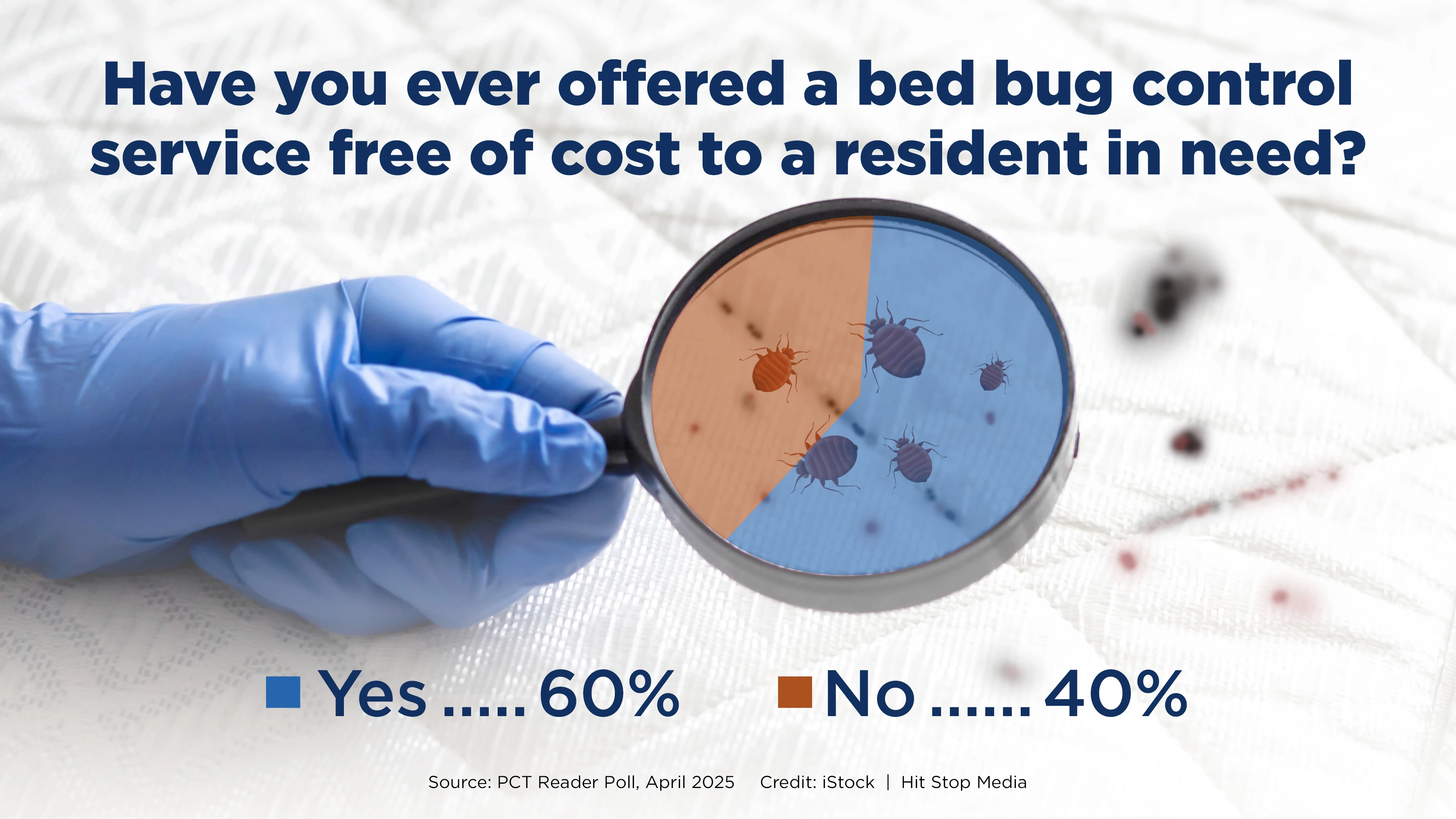More PCOs are looking into selling their businesses and experts on the subject say the trend may be here to stay.
Although there have been a number of sales and acquisitions in the pest control industry throughout the past several years, experts on the subject say there’s no indication of the trend slowing down. "If you’re ready to get out, this is the time to do it," said Sam Shahara, director of corporate development, Orkin Exterminators, Atlanta.
Shahara, together with Pam Jordan and Don Jamison, spoke about sales and acquisitions in the pest control industry at PCT Dialogue last year in New Orleans.
Although no one can predict how long such a trend will last, those on the panel said there are many players in the market who are using acquisitions as their business’ growth strategy. Shahara said one reason the pest control sales and acquisitions market is so hot now is because pest control companies are good cash flow businesses. He said many people have realized that it is easier to grow a business through acquisitions rather than starting from scratch.
WHEN TO START. So when should a PCO begin to prepare to sell his or her business? Today, many PCOs are of the "baby boomer" generation and are getting close to retirement age. "One reason to start thinking of selling is if there is no heir to take over, if the business is no longer fun or if there is more pressure," Shahara said.
Although you may own a company that has been steadily earning you a living for years, that doesn’t necessarily mean a buyer is going to be interested in your company. The panel said some turnoffs from a buyer’s perspective include claims against the company, a lackluster hiring process and high employee turnover. "High employee turnover is a signal to us that we are probably going to find a lot of problems underneath," Jordan said. "It’s a huge red flag."
HOW LONG IS THE PROCESS? The length of time it takes for an offer to be made and a company to be sold varies with each situation. Jamison said for him, the process took about six months but that "the sale of a company is a very individual thing." He said someone could think over an offer for three years. "You make that decision in a lot of different places and a lot of different ways."
Jordan explained that there are six phases to an acquisition: first is the "courting" phase, where the buyer and seller first begin communication; second, a letter of confidentiality is signed; then, initial financial information is exchanged; fourth, a letter of intent to purchase the company is signed by both parties; fifth, due diligence occurs, where financial records are poured over and studied; and finally the contract phase, where the sale is finalized.
THE EMOTIONAL SIDE. Buyers and sellers alike have to realize that the sale of a business is not something one does every day. "Selling your business is extraordinarily emotional," Jordan said. "You’re feeling so torn."
"If you’re buying a company, you have to be aware of the emotional aspects," Shahara said.
The experts agreed that the South will be a big area for acquisitions in the future, simply because of the sheer numbers of companies in that region. But wherever your company is, if you’re thinking of selling your business, be sure to be prepared to deal with whatever obstacles may arise in the process. And also be prepared for someone else to take an in-depth look at just how you run your business.
"It’s never too soon to start thinking of increasing the value of your business," Jordan said.

Explore the January 2000 Issue
Check out more from this issue and find your next story to read.
Latest from Pest Control Technology
- Target Specialty Products, MGK Partner for Mosquito Webinar
- Cockroach Control and Asthma
- FORSHAW Announces Julie Fogg as Core Account Manager in Georgia, Tennessee
- Envu Introduces Two New Innovations to its Pest Management Portfolio
- Gov. Brian Kemp Proclaimed April as Pest Control Month
- Los Angeles Ranks No. 1 on Terminix's Annual List of Top Mosquito Cities
- Kwik Kill Pest Control's Neerland on PWIPM Involvement, Second-Generation PCO
- NPMA Announces Unlimited Job Postings for Members





